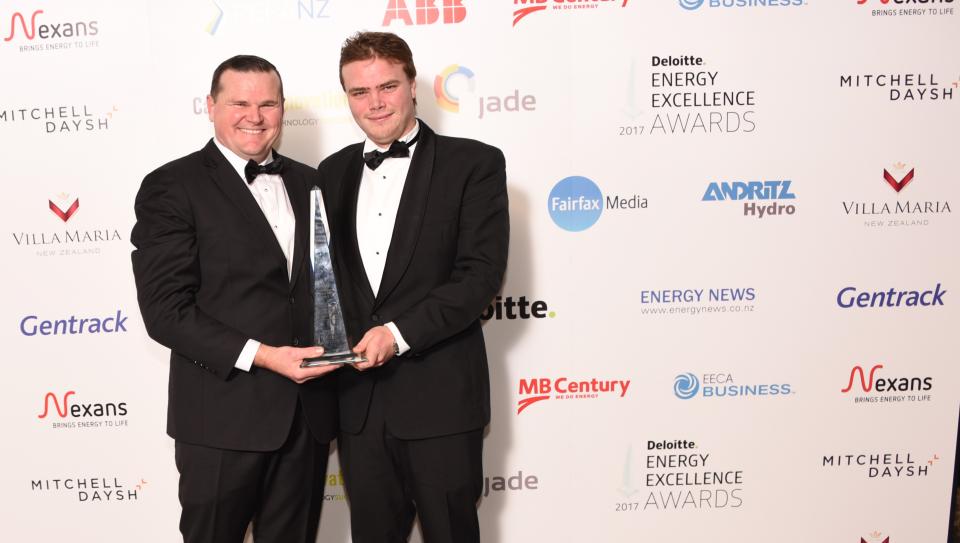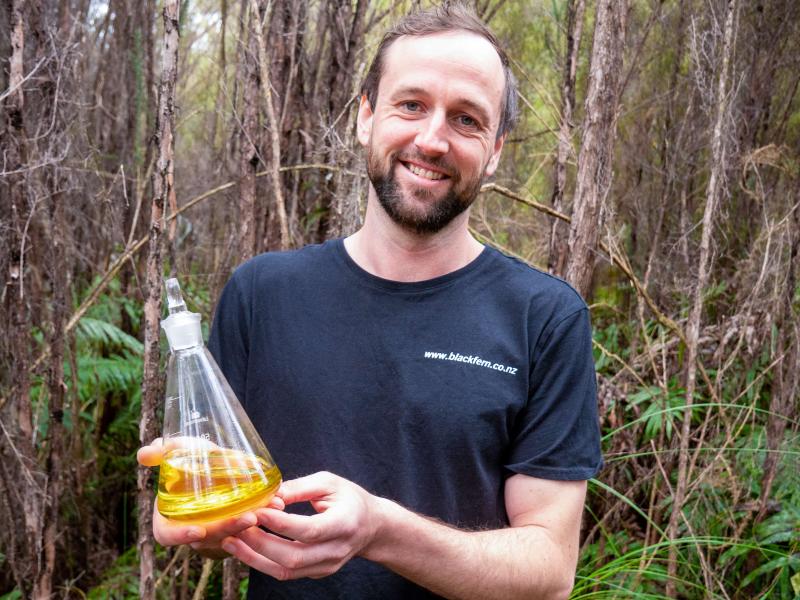Energy solutions company LZ New Zealand didn’t set out to become an exporter, but buyers offshore couldn’t resist their technology. Now there’s an exciting new development in the pipeline.
Liberio Riosa is not one to get ahead of himself and he has grown his export business, LZ New Zealand, step-by-step over the past ten years. But he is hugely energised by a new patent the company is about to lodge which, he says, will redefine the maglev industry.
For those not in the somewhat rarified world of sustainable power generation, Wikipedia describes maglev (derived from magnetic levitation) as a public transport technology that uses magnetic levitation to move vehicles without making contact with the ground or an electrical pickup.
Liberio says, essentially, his company is looking at developing the world’s first off-grid charging stations for electric cars, using maglev technology.
The company has applied for a grant from Callahan Innovation to help with the R&D and aims to patent and launch the new product in the first quarter of 2018.
With an electric car, you currently have to stay on the main routes to access charging stations and Liberio says their solution will solve this problem.
He says it will “blow wind turbine generation out the door!”
LZ New Zealand is a multi-faceted business offering a range of environmentally-friendly energy solutions across the infrastructure, power generation and residential markets. These include LED lighting, solar photovoltaic (PV) systems, vertical axis wind turbines and complete hybrid power generation integration and battery storage.
In addition, its solutions can be monitored and adjusted from anywhere in the world.
Liberio says he didn’t set out to build an export company, but initially focused on the domestic market. However, exporting started early when he began getting enquiries from offshore.
The company’s first project was in China providing lighting for the Nanjing Youth Olympics Centre with 2,500 solar and wind turbine powered LED lights installed.
Today, he believes he is close to finalising a deal with the Indonesian transport authorities which, if successful, would see the company provide off-grid street lighting to a 112-kilometre tollway in Sumatra and a 120 kilometre tollway in Java.
Again these would all be off-grid and powered by solar and wind power and, if they come to fruition, it would mean a contract worth about US$32 million.
After the first work in China the company’s next international foray was into Saudi Arabia where it installed a 3,000-pole off-grid lighting and security camera system along the Saudi border for the military. Part of that agreement means, because it is a military zone, LZ does not monitor the system for the Saudis as it does for other customers.
Liberio says that about 80 percent of the company’s solar and wind turbine street lighting business is now offshore, along with about 60 percent of its LED lighting work.
They are also currently working with their Philippine agent for off-grid cellphone towers on islands in the Philippines where there is no power.
Essentially they install a mini power station on each cell tower. The control unit includes an SOS function so if the unit gets smashed in a storm it will have enough power left to send an SOS alert to maintenance crews.
Other work offshore has seen the company secure a contract to supply 50,000 off-grid street lights in Miami which is currently underway, and Liberio is proud that in the face of Hurricane Irma the galvanised poles in concrete bases successfully withstood the vicious tornadoes and wild winds.
Offshore production
Liberio is the owner of the New Zealand and Australian side of the business and has two business partners in China where they jointly own two factories – one business partner responsible for the production of the LED lighting range and the second business partner for the hybrid street lighting and wind turbine generators.
His first partner, Xiaofeng Wang, is a lighting engineer and, while originally Liberio was buying the LED lights ex-OEM (original equipment manufacturer), when Wang decided to set up on his own they joined forces.
It was a similar scenario with his second partner, Depeng Zhang, and between the two joint companies they employ 200 staff at the factories in Shenzhen province, which borders with Hong Kong.
Three years ago Liberio also took on another business partner, Del Zatar, who takes care of business in the United States. He is also now looking at opening a branch in the United Kingdom where they are in talks with the conglomerate Tesco about LZ’s new maglev technology for electric car charging.
There have also been some discussions with Tesla engineers, although it is early days as yet.
This is all, he says, “very exciting for a Kiwi bloke”.
Cracking the domestic market
Liberio’s background is as a boat builder and house builder. He has an electrical lighting degree and describes himself as a “practical hands-on guy”.
But while things are growing strongly offshore, the New Zealand market has been a harder one to crack. The company has undertaken a variety of smaller, pilot schemes around the country – although a recent win in the Energy Technology of the Year category in the Deloitte Energy Excellence Awards 2017 has seen a few local entities begin to take notice.
In New Zealand LZ has done some work with off-grid street lighting in Avondale in Auckland for the NZ Housing Foundation and has test projects in Porirua, Rakaia and Ashburton.
They have just completed the lighting for the new Waikato Cycle Trail and are in talks with the Christchurch City Council for work on part of a new cycle path there.
New Zealand tends to be more conservative regarding off-grid systems than offshore clients but Liberio says that if the power in Auckland was to go down in a storm or earthquake, a little pocket in Avondale would still have light.
His advice to other business owners thinking of entering an export market is “don’t get too excited straight way. Let it happen step-by-step as you can get overwhelmed”. And, he adds, don’t grow too quickly.
You also need to know the Chinese market and have a good business relationship with whoever is doing your manufacturing.
“If I am just dealing with an OEM, I’m just another Joe Bloggs. That is why I bought into the factory with my business partners. You have got to have a business partnership with your manufacturer.”
But, he says you need the relationship first, before you buy in.
His final tip? Take things slowly, one day at a time.
Article by Annie Gray, editor of Management.
Photo: Liberio Riosa and son Zachary at the 2017 Deloitte Energy Excellence Awards.





